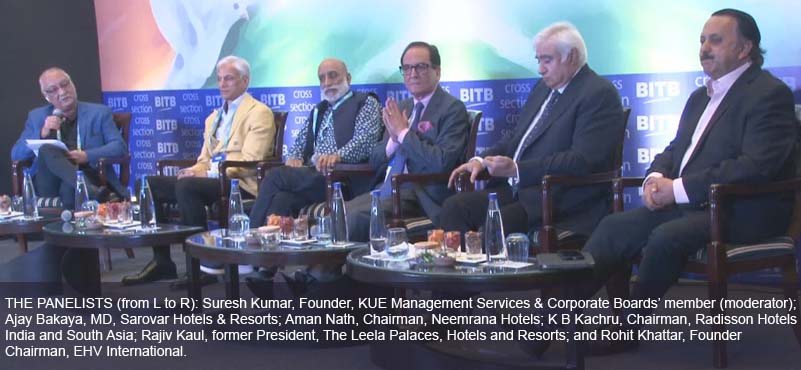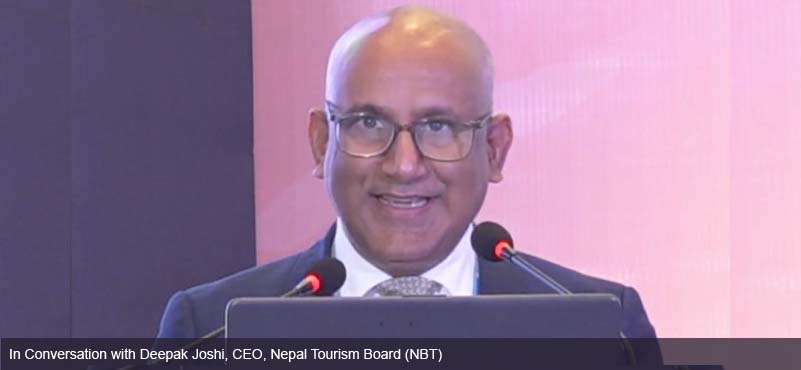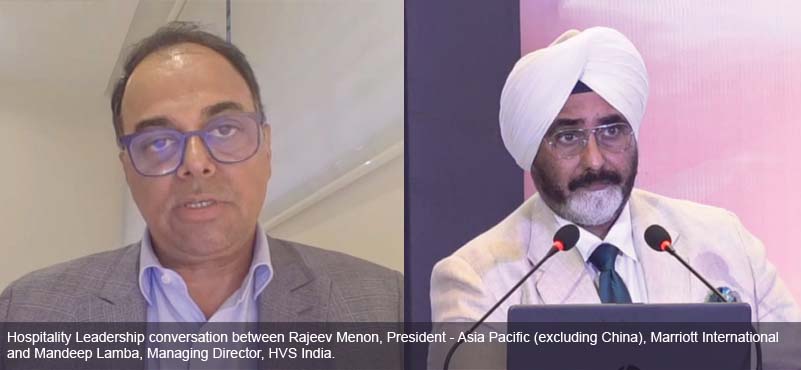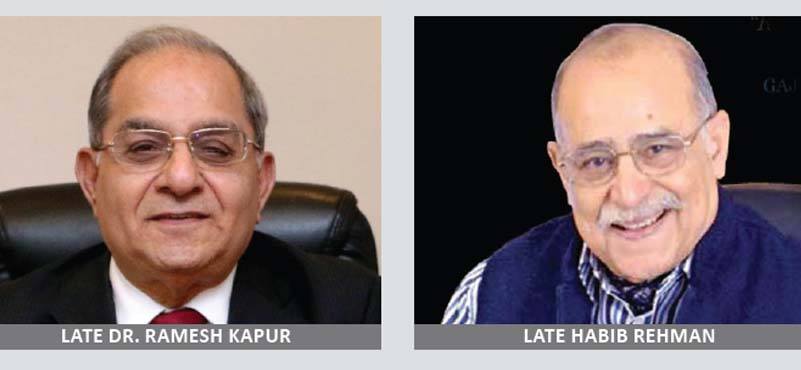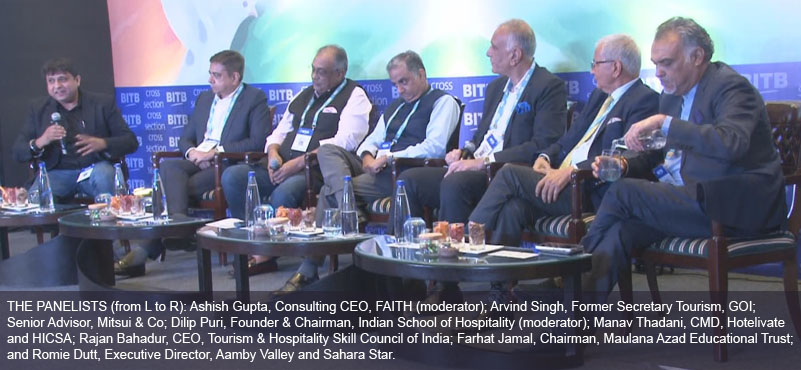Share the post "The Master Class: Legends of Indian Hospitality Share Their Journey"
Suresh Kumar: A privilege to moderate this distinguished panel of industry stalwarts. Each person here has not only shaped Indian hospitality in the landscape, but has also navigated unique segments within it, from luxury to heritage, mid-market to high-end dining and significant players across various tiers. Our objective, is to tap into their vast experience and gain insights that span the diverse facets of our industry. We will be exploring their journey, their vision and their advice for the future.
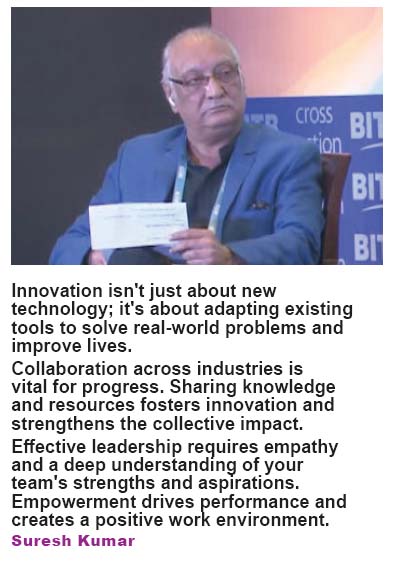 How has the industry evolved and which aspect of it will you single out as the most impactful for the industry? Is this going to be a long-term impact or is it something which you will like passed over to the future generations?
How has the industry evolved and which aspect of it will you single out as the most impactful for the industry? Is this going to be a long-term impact or is it something which you will like passed over to the future generations?
I’ll start with Mr. Kachru. With Radisson’s expansion into numerous markets, particularly Tier 2, Tier 3, how has the operational and developmental landscape evolved during this time while you have been at the helm of affairs? And what long-term impact stands out that you believe should be passed on to the future generation?
K.B Kachru: Referring to what Navin said this morning, we were born here in India, in this hotel, this very hotel. And I remember the days when the hotel was under construction, we couldn’t even get the raw material properly. It used to come on donkeys. And there was a little stretch where even they could not come. So, this was our story then.. And I remember my first brief, was, we’re entering India, we need big blocks, we need big boxes, and we need to focus on our key markets. When I actually got into the market, I realized that, any international company coming without investment or committing themselves with guarantees, it’s very difficult to get into that particular market because mostly at that time, industry was driven by management companies who were actually investing in real estate. What we wanted to do, the initial team we had, we were very few, just two or three of us here when we started this company. And we focused on our purpose much more than anything else. So, we felt tier two, as Raj mentioned a little while earlier, today everybody’s talking about 50% of GDP coming from tier two and tier three towns, we felt at that time, 28 years back, that that was the space which had the possibility. And we started looking at tier two, tier three, and tier four cities, even at that time. If you look at us today, we have a little over 200 hotels, and almost 50% of them are in tier two and tier three towns. And our own revenue streams and bottom line is driven by tier two and tier three towns. So, we were amongst the very few, along with Sarovar. We now have the same parentage. We focused on these areas and that’s how we developed tier 2, tier 3 and I feel India’s future would be driven by small towns.
Suresh Kumar: Thank you for your insights. This is for Aman. For Neemrana, evolution often means balancing modernization with preservation. How has the heritage segment evolved and what enduring principles or impact would you highlight during this journey?
Aman Nath: I think that when you talk about the past, I’m talking now of the 80s, history doesn’t repeat itself, I think it speeds itself. And sometimes the opportunities which were offered in the 80s will never be offered again. Heritage at that point only meant the Maharajas and the Thakurs and people who were sitting in their own properties. It was about history or continuing history or living history. But it may seem odd to say, but I think entrepreneurs can recognize that, that every challenge leads you to do something which you wouldn’t do, if you were overfunded. So, one of the great assets of Neemrana was to have no funding. I had a salary of 2,800 rupees when I bought Neemrana. It looks very silly. But one had the confidence that one would do it. And of course one did it.
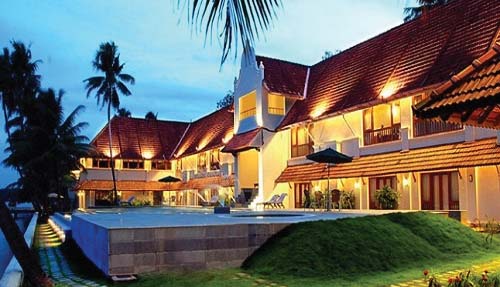 But it was also the time when DLF had bought all this land and Mr. KP Singh said that he was ruined because he had bought 2000 acres and not one inch was selling. So, he talked to somebody and they said get me, the best advertising guy, because you know we need him. They thought I was the best at that point. So, I went and I did three campaigns for Mr. KP Singh and he called me to his office. He came across the table, hugged me and said, I’m selling two crores a week, in the 80s, I’m talking about. So, money from advertising, money from all the other things I did, went to fund that. So it was, you can’t tell people today, to start a mad project with an empty pocket but that was the truth.
But it was also the time when DLF had bought all this land and Mr. KP Singh said that he was ruined because he had bought 2000 acres and not one inch was selling. So, he talked to somebody and they said get me, the best advertising guy, because you know we need him. They thought I was the best at that point. So, I went and I did three campaigns for Mr. KP Singh and he called me to his office. He came across the table, hugged me and said, I’m selling two crores a week, in the 80s, I’m talking about. So, money from advertising, money from all the other things I did, went to fund that. So it was, you can’t tell people today, to start a mad project with an empty pocket but that was the truth.
I think the biggest problem was and I wouldn’t say is, because that is what I think Neemrana has singularly achieved in changing, because we went to 15 states and every time you went and you wanted to do something, the colonial mindset was not over at all. The government was saying the country belongs to us, you are only a citizen or you’re an interloper. So, you were an outsider and I would say again and again to them, if I am going to restore your property, I will not run away. I can guarantee it. I can write it. I will not take it with me.
So, what is your insecurity? We are doing all the things that people and politicians talk when they go campaigning That will give you employment, we’ll help people not migrate to the cities and stay where they are. But what was the government doing about it? I work only on intuition; I’ve never believed that you can go to one of those big people who give consultancies and ask them advice on something they’ve never done. So Mr. B.K. Oberoi sent a team, his team of people to Neemrana before I saw it actually and when I met him later, and he said, they came back and told me not to touch it with the barge pole, it’s beyond repair, so he said,” fools my people”, so I said I don’t know who the fool is, you know because if you send your cook to go and see a ruin and ask will it make a hotel? You don’t expect that kind of vision from him.
So, I would say that intuition for people sitting in this room because they are not ordinary people because they are keyed on in a direction. I think they should trust their intuition as I think you also did. And intuition goes a long way rather than asking laymen and people because if you ask ten people and listen to all of them you are sure never to start anything.
Suresh Kumar: Oh that’s brilliant, I think it was a shift of paradigm. I mean you brought in a change in actually making people believe that you can convert these forts and havelis into modern comfortable living.
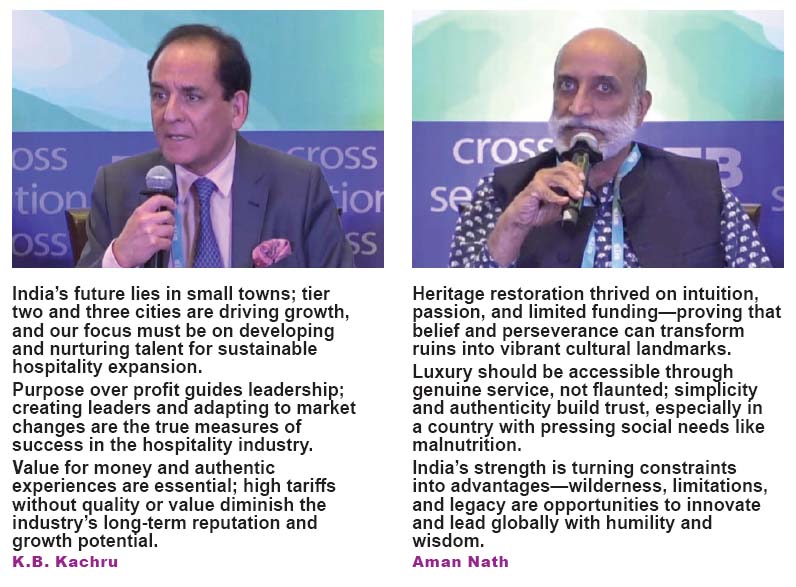
Aman Nath: No, we didn’t make them believe it. I only believed it myself. So, when we did open and we called them Neemrana non-hotel hotels in our advertising, I remember Aroon Purie called me, and we are close enough to talk closely, and he said you know I think it’s negative why would you make a hotel and call it a non hotel hotel I don’t think there’s any hotel chain in the world that is called a non-hotel hotel, because we had a reasoning, Neemrana was never built to be a hotel. It’s a 15th century property, it’s at 14 levels, it’s got terraces, stairs, it’s a madness.
Suresh Kumar: That’s brilliant. Now my question is to the luxury man of this country, Rajiv. From the luxury perspective, how has the definition and delivery of luxury evolved over your career and what’s one change that you see having a lasting positive impact for the future generation?
Rajiv Kaul: My mind turns to, when we started out as very young, I think it was 1987, and Ajay (Bakaya) and I were sent by Mr. Bikki Oberoi to take a look at what were rated as the world’s finest hotels. So, we spent, three days at the Oriental in Bangkok. We spent three days at the Regent at Hong Kong. The point I’m going to make is that the bastions of excellence were in the Far East, but it was these hotels and it is so gratifying to see the wheel turn and in less than 25-30 years, you have the world’s finest hotels that are in India. Consistently we have the Oberoi, the Leela, the Taj and the others as well, being noted and being consistently being rated as amongst the world’s finest hotels.
It’s great to see India make a claim for luxury and it is testimony to the leadership that is there in this country because it’s people who actually make it possible. Without trying to be too provocative, I think that you know there’s a difference between golden and gold. There’s a lot of golden going around, pretending to be luxury. Don’t mistake it for gold. And in gold, you have 14 carat and 24 carat. I think that we need to be mindful of this.
And you have two-star hotels who are promising you an experiential stay. I think that we are getting too carried away and we just might do ourselves in, as an industry, with this level of enthusiasm. I think that is the only thing that concerns me and again 30 years ago or forty years ago when we started out, in Asia, we always called it the hospitality industry because that’s what it was.
But I don’t know how, the youngsters here will not know this perhaps, that the US or North America always called it the lodging industry. They were very clear it was the business of lodging. It was not hospitality. And it’s fantastic how in the mid-90s, they let go of lodging and they’ve taken over the hotel and the luxury industry. So, whereas we, in our innocence and our enthusiasm, are following some of the practices of the lodging industry.
Suresh Kumar: I come to a man who pedals his way every Sunday, 103 kilometers on a cycle. And I think he ran his own business also with the same zeal. It was years ago when he pedaled his professional career and became an entrepreneur and got into the management business. I think Ajay, there’s a lot to learn from you. Today you have 100 plus hotels. So now can we on this segment or mid-market segment which has been the most significant evolution and you were a pioneer in this. In terms of guest expectation and operational models, what do you think it has in its long-term significance to this business?
Ajay Bakaya: So, I think I’ve heard a lot of the other panelists before and we talk all the time about what we do as an organization. What we did right as an organization was kept our ears and eyes open on what guests was asking for. And I think that’s probably one of the greatest cues in running any business well. And my customer was the hotel guest. My customer also was the hotel owner. We have 140 hotels operating today. We own two and we’re opening a third one. So, it’s all managed. And in the management sphere, if I don’t cater to my owner clients and produce profits, all my theories and my philosophies, et cetera, are worth nothing.
But in essence, we always build the company on plain, simple common sense. When we entered the space in the mid-market, we were very clear, we wanted to stay in the mid-market. We’d worked in luxury, we had great backgrounds, but we also understood that if somebody was doing 120 and a 50 room hotel and better category or luxury categories, they had plenty of choices and they wouldn’t really necessarily come to you. We knew where we were heading and our thing was very simple. As far as the hotel goes, can you serve decent food consistently all the time? Can you keep your place clean? Two major mantras. Whether you’re running a one star or a five star, still holds good. Can you serve decent food day in, day out, consistently? Deliver more than what you promise? Can you keep the place impeccably clean? And I always say to my people, we’ve had this all along, for any manager at any level, treat guests in your hotel as you would treat them in your home. You and everyone who comes to your home, visits, goes out happy. Do the same thing.

It’s not, hotel business is really not rocket science and I think we need to adapt where we go along. So we’ve been adaptive and we’re still adaptive. I’ll give you an example. There’s a big session today on how we are treating people and how many hours and no split shifts etc etc. It has to change to the situation. We built a hotel now in Sri Parambidur. It’s an hour and a half outside of Chennai. There’s nothing to do there. We’re providing accommodation to every single person that’s there. Those guys are more than willing to come for morning, for breakfast, for lunch, and for dinner. They have nothing to do. As long as you compensate them. The question is not, not do the dump the split shift. That’s an easy answer. The easiest answers are always never the best answers. Question is, can you compensate?
We moved our car drivers from eight-nine-hour shifts with everybody else in the hotels doing eight hour shifts to 12-hour shifts with a 40% higher salary. Those guys never leave you. They’re out of their villages, their homes, to earn money. They don’t care how many hours they’re working. You think young kids between 18 and 25 and 30 care about how much they are working, as long as they are compensated enough. They have the energy. But can you give them money or not? And if you can’t, then you are not doing it right. So, I think the hotel business was never rocket science, it’s never going to be rocket science. You evolve as you go along, you adapt to technology, and that’s the biggest thing today and for the future.
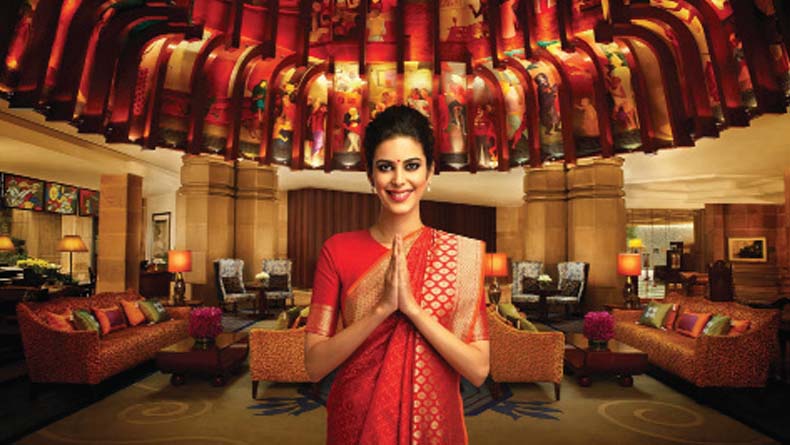
Technology is going to play a huge part, and the bulk of your money is going to go into technology and how to do your distribution. And are you smart enough, even as a small hotel or a small group, to get across to your customer? It’s all on the internet now. The gray generation is more of your Facebooks and the new generation is all on TikTok and Instagram. Can you reach your customer? So tech plays a big part. Plain, simple, common sense drives hotels. We don’t need Einstein’s.
Suresh Kumar: Rohit, the F&B industry is constantly innovative. How has the high-end restaurant scene evolved and what single most impactful shift do you think will define its future for upcoming professionals? Impactful situation or formula which will impact the future generations?
Rohit Khattar: Okay, so I actually don’t think fine dining is growing at all. I think the all-new customer is, or guest, is looking for interesting experiences and most of them actually are delving around casual dining. For example, my restaurant Indian Accent, I don’t think I can open even in Bangalore or Hyderabad yet. Forget Chennai and Calcutta, we’ve looked at it, we keep on getting offers but something like Comorin, we could probably open in every major metro and the smaller ones, smaller formats like Chor Bizarre etc, we could open everywhere. So, I think people are a bit too, unless there’s something really out of the ordinary that you’re going to spend six, seven thousand rupees per head for, I think people now are spoilt with choices.
When I came back in 1986 from the US, every restaurant was actually, the better restaurants were all in hotels. And all these legendary people here, the best restaurants were in their hotels and not freestanding at all. Of course, there were the old favorites like the Kwality and Gaylord. And when I opened Chor Bazaar in 1990, that became probably, I would say. it was like a standalone only because nobody had really heard of Broadway Hotel, it was a small hotel. But that’s about it.
I think what one of you touched upon, I think Bhushanji, about small towns. I keep on getting offers to open in Raipur and I’m embarrassed to say I didn’t know where it was and we got two offers, three, and I just said, who will go here? Why would one? And then you realize that it’s a booming, really a booming place. We are franchising Chor Bazaar to a couple of hotels, and the same group has a hotel in Guwahati. And I just said, I’m not going to come to Guwahati and sure enough when I went there, that’s actually the best hotel. That’s the best one out of the lot and the city was nice, it was young and I figured that okay, what do I know. I think these are the trends and it’s actually youngsters who are determining the future in terms of dining. I used to often wonder, how can these spoilt kids eat in Indian Accent for 6,000 or 7,000? Who’s paying? Who’s paying for them?
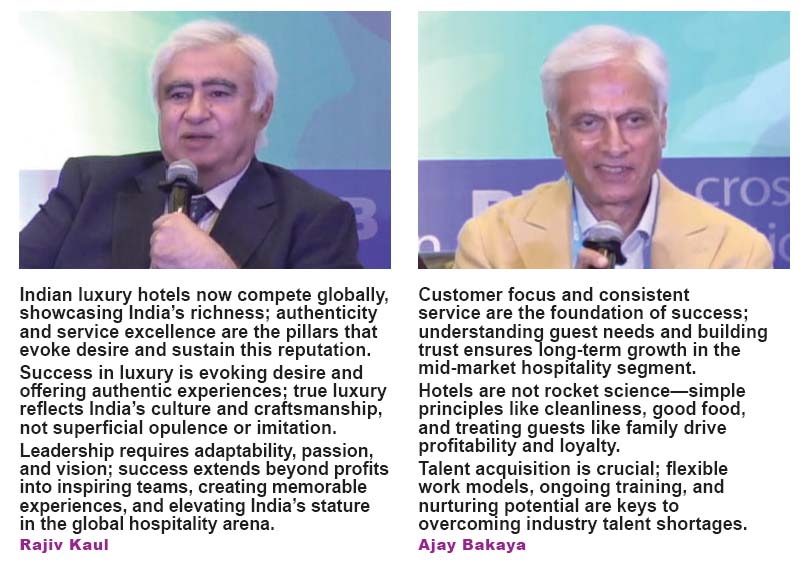
And a lot of times, and I actually did interact sometimes, with kids in the restaurant. And I realized some of them were actually starting out. They weren’t really spending their dad’s money. They just wanted to give their girlfriend an interesting experience. So, it was the experience that mattered.
And similarly, but there’s a lot of pressure to keep it at that level for 15 years, as we have. I’m not sure you can keep on doing it, but the smaller restaurants below 2000 rupees, 1500 rupees, that’s where the future lies. Then, for the kids it is very difficult to keep their interest. So, you need to get a batch of management trainees, we take about 25, 27 and to keep them because in today’s generation, there’s a very low threshold for adjustment. You know, you don’t want to listen to stuff from your parents, let alone your boss. And then there’s the work-life balance. And there’s no industry worse for work life than ours. We can all start working on it, but difficult, difficult because we are on call 24 hours.
Suresh Kumar: So that’s brilliant. I think the common thread of adaptation and foresight is evident from all your responses. My next question is what is your idea and criteria for success? What is your idea or concept of your success? How much of it is because of financial backup, which is called money, empowerment, power positioning in the hierarchy? Now this is a little personal question. Rohit, you have built a culinary empire. How do you define success for yourself and what role do factors like power, creative fulfillment play in this definition that we have for you?
Rohit Khattar: Firstly, correction, it’s not really an empire, it’s very few restaurants but I guess some of them have been impactful. So, I would say that the only legacy one would want to be remembered with is, when I go to any of the restaurants, almost everywhere I don’t pay my bills anymore, because somebody else is comping you. So there’s a chef, or a manager, or there’s a hotel owner, or a restaurant owner, who has worked with us at some point, or is kind enough to recognize. So, I would say that I feel pretty happy about that in a way. I’d like to pay but it’s very good on the pocket. And then the other thing is that people should just remember that they had a good time. They came to your restaurant and they had a good meal and they have a nice memory.
Suresh Kumar: Thank you. And Aman, as someone who pioneered a unique hospitality model, how do you define success in the context of Neemrana? And what is the most rewarding aspect for you?
Aman Nath: I think empowerment is the most important aspect. I wanted to just make a small correction when I talked about when I started Neemrana and the salary I had, it’s not the entire truth because I’m well born, I was from an industrial family, I had a car, I had food, I could come back to my house. I wasn’t living in a thatched roof. But given that, many other people wouldn’t have done what I did. And I wanted to say to Rajiv that one admires greatly what you do and the levels of luxury. But this is my personal view, I think that luxury is something that should not be flaunted, in a country like India, because the people who work in the hotel the people who come, access to luxury is something you earn. But if you think of 40% of children in India who have malnutrition, you have to have a hardened conscience to just talk luxury. I think when we started, simplicity was all we could offer, because you know, there were constraints. But we had right at the beginning, the niece of the Queen of England who came and she wrote, this is the most beautiful hotel she’d ever been to anywhere. So, she was on her honeymoon and I think the love was influencing that statement because Neemrana was none of those things. And we had, just to create trouble for us, the first conference that we had was the general managers of all the Oberoi hotels worldwide. They didn’t want to be in their own hotels so they landed up at ours.
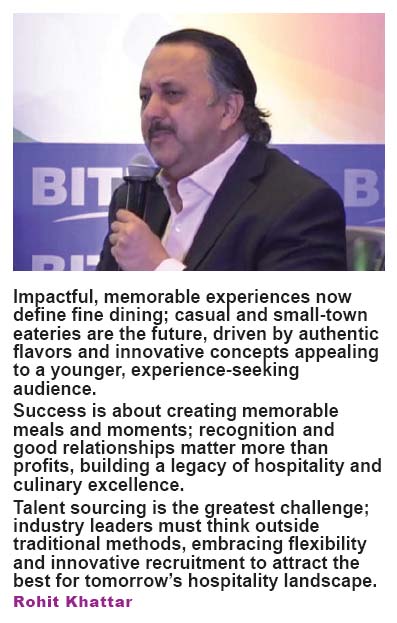 I think we didn’t even have enough plates. But we really had a great experience. So, the learning was that it’s not always escalation and escalation and escalation which has happened in the market, because you do 5 stars and 6 stars and 7 stars and super luxury. But I think there has to be some wisdom on that, in a country like India, because I believe that if you go to the Umaid Bhawan Palace, if the most expensive suite is seven lakhs, or whatever it is, the person who lives there, who stays in that hotel, or who’s earned that place, is not necessarily somebody like us or somebody very young. So, if you’re middle-aged, or elderly, and step into a bathroom which is all mirrored, you take off your clothes and you see your flab, you might want to drown yourself in the bathtub, rather than have this picture of rose petals and things. I think that we should talk about great service and we should beat the whole world at it, but we should keep something which is simple.
I think we didn’t even have enough plates. But we really had a great experience. So, the learning was that it’s not always escalation and escalation and escalation which has happened in the market, because you do 5 stars and 6 stars and 7 stars and super luxury. But I think there has to be some wisdom on that, in a country like India, because I believe that if you go to the Umaid Bhawan Palace, if the most expensive suite is seven lakhs, or whatever it is, the person who lives there, who stays in that hotel, or who’s earned that place, is not necessarily somebody like us or somebody very young. So, if you’re middle-aged, or elderly, and step into a bathroom which is all mirrored, you take off your clothes and you see your flab, you might want to drown yourself in the bathtub, rather than have this picture of rose petals and things. I think that we should talk about great service and we should beat the whole world at it, but we should keep something which is simple.
Suresh Kumar: There is a great learning from here. Mr. Kachru, with such a vast operational footprint, how do you measure success for yourself and for the Radisson Hotels? And what elements beyond tradition metrics are crucial in life?
K.B. Kachru: I think one thing is very personal to me, but I think it’s very applicable to most of us. It’s purpose over profit. I think you get a direction, what you should do, what you shouldn’t do. We all agree that empowerment is something which cannot be compromised at all. And I don’t know, I personally feel you are not a leader if you don’t create leaders. It’s the people who make organizations. No individual can ever claim that I did it or he did it. It’s the team. You create institutions. You are part of the institution, but the institution is bigger than you. I think we also have to adapt ourselves to what is happening around us. Market dynamics are changing all the time. And if we don’t go with the flow, my friend here Aman said, we have to remember what India is, what we need to do here or not. I’m not capable enough to comment on this in terms of whether we should be in luxury, or not be in luxury, and just be in mid-market. But we are global now. We cannot say today that we need to focus 10% here or 50% there.
Aman Nath: I want to clarify that. You see, when the Taj Mahal Hotel opened in 1904 in Bombay, Mr. Tata had a mission. India was, we were slaves, and people were, you know, we had complexes. So, he fought that complex. He said, we can do it as well as you.
What I’m saying, today we don’t need to go on fighting that complex. I think that we’ve arrived and we can do very well. Luxury must exist. I think Dilip said it somewhere, why are we so busy giving a bad croissant to a French tourist, why can’t we give a ‘lacchedar’ paratha, you know? And so I feel that we got to take the world on our terms as is happening at the moment. So while we have brought luxury which the world thought we could never do, we should now redefine it on our terms and not be on their measure. That’s what I meant. I didn’t mean we don’t need luxury.
K.B. Kachru: We need to be sensitive. I don’t think we can get away from being sensitive. I think the key issue here is, if we are looking at and competing with the rest of the world, we have some countries which have five million rooms, two million rooms, three million rooms, we are not even quarter million rooms.
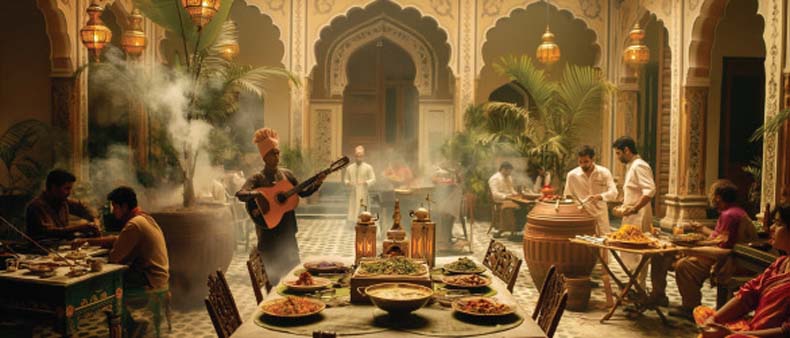
But we don’t have people. People need to be developed. And we need to focus clearly in developing people, retaining them, and not using them. If I wear my other cap of the industry, Hotel Association of India, I think a major shift has to be for developing people, retaining people, upskilling them all the time and not be so tentative about this institute has to do this or that. I think there is enough space for everybody and we should promote institutes that are world class. And we should have the strength to acknowledge and do something about it.
Suresh Kumar: I think brilliantly said, we should not use resources, we should nurture them. This is to Ajay. What do you think, the reason for success out of the area that I mentioned financial power, financial performance, empowerment or nurturing talent.
Ajay Bakaya: Professional success is only measured by one yardstick. It’s EBITA margins. Are you delivering profits or not for the company? You can have all your philosophies in the world and everything else in place. If you’re delivering those profits and you’re growing the company, you’re professionally successful. The philosophies are behind it and the philosophies come later but I think the key is really if you are to judge yourself as a department head, as a general manager, as a cluster person, as a head of a company, are you constantly, consistently delivering profits, are you growing those profits, are you growing the organization.
So that’s first, now what goes behind it? So, I think I would measure a professional success, leave aside everything else on personalities, on the sheer dint of numbers. This is the people who are investing their money; they’re investing for return, largely, and you’re in the business of delivering those profits. So that’s number one.
Now how do you go about achieving it, what happens behind the scenes etc. etc. Yes, it’s a people business, so your priority has to be people. Do you have the ability to lead, do you have the ability to show people what to do, to demo what to do again and again and again. Do you have the ability to coax, to cajole, to guide? Do you have the ability to fire? It’s a tough one but can you sit somebody across the table and say, hey mate, things just aren’t working out and thank you very much, we don’t need you from tomorrow.
All those things had to fall in place for you to run a successful company. So it’s just not being good to people, it’s being fair to people and the organization. The focus has to be on the top line and even more importantly on the bottom line.
Suresh Kumar: Thank you for your view-point Rajiv sir from the pinnacle of luxury hospitality, how do you articulate your personal criteria for success and how do empowerment and position factor play into this?
Rajiv Kaul: Let’s just understand the spirit of luxury. I mean basically for you to qualify as luxury you have to evoke desire. A person must want it, whether it’s aspiration, but it must evoke desire. You want to experience it. If you take a look at the successful luxury hotels of India, the Taj has the palaces, the Leela has the palaces, the Oberoi has the Vilas collection. What are they doing? They are all showcasing India. They are showcasing the richness of India. I mean I agree with him that you don’t want to have fake copies of Raphael, rather than having an original Indian master. So be true to experiential, luxury today is a buzzword but people have long known it, that there is always a premium for authenticity. So, I think those are the elements which one needs to stress on if you want to be in the luxury space. And finally, of course, the foundation will always be service. It will be service excellence. Excellence in service. See it is a hygiene factor. So, it speaks from its absence. And then when you are able to elevate something which is very mundane into a performing art. That’s when you really hit the note. It’s an amalgamation of passion, vision, dedication.
Suresh Kumar: Yeah, I think what you are saying, all of you are saying, making very profound statements, because success is in any case comes from within, in your own mind. And that is experienced by the the customer can change the outlook. That’s what I believe, what I’m understanding from this.
Rajiv Kaul: It’s very personal. We all know that our personal definitions of success have evolved as we have grown older, isn’t it? So since having said that Ajay, with due respect, I think success is something much greater than financial, than just some numbers which get buried at the end of the year and a new reset begins. But I think success is something which goes well beyond a balance sheet into something else.
May I just stress on one thing since you were personal. I think that you know something which is not stressed upon enough and you touched upon it is the ability to adapt. One has seen so many successful general managers who are successful, what I would call them peacetime managers, but when there is war, you have to change them. And then you have war managers. Yes, who are great to open a hotel, but then you better get them out of there because they thrive on conflict.
Aman Nath: I want to say something. I think being Indian already means that you can adapt all the way up and all the way down. So, the constraints that we have in India, I think we have many even today, and when we started Neemrana, there were that many more. The idea is to see things differently. You know people say location, location, location, all right. So, you know McDonald’s, I think employs a maximum number of people in the world because of this thing. But today if you look at tourism and say the opposite, where the hell is this place, is now a measure of success. So, wilderness is wilderness, is wilderness.
So, I’m talking that that is our strength today, that we should be able to turn our limitations into advantages, less into more, and then we are ahead of the world.
Suresh Kumar: People first is a cardinal principle in our industry. And we have been talking about it. Yet we talk about lack of talent, nurturing talent, holding on to talent. I think this has been a topic right from the beginning for years. The industry is not attracting the best of talent.
The challenge of AI and high-tech, which will also challenge talent. Where do you see this talent in the future?
Ajay Bakaya: No, it’s a bigger challenge than what we had in the past, but it’s a challenge that one has to overcome. There are more opportunities than there were earlier. There are more opportunities in the country today, in a growing and evolving and booming country, with a large economy, that’s developing for youngsters to get into, irrespective of top-notch qualifications or no qualifications. So, we have a challenge, and we need to adapt. We need to do a lot more of where you can, things like work from home or work somewhere else once or twice a week. We need to be more flexible.
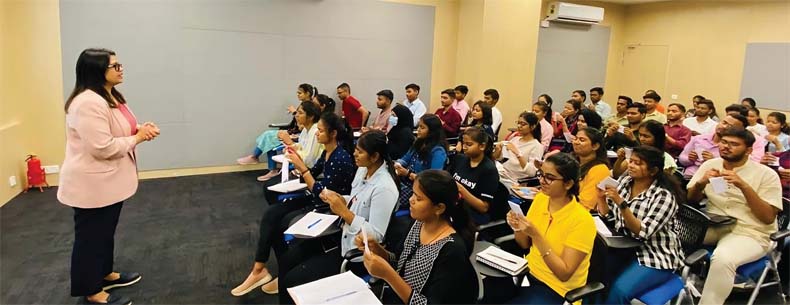
I’m looking very hard now for people that would be available to me, students or otherwise, six to nine in the morning, five days a week, 20, 25% more hourly salary than a regular employee. One has to adapt. This permanent part-time model is an old one in many countries. And you need to be more flexible. You need to listen to those people that are working for you. You need to have a plan for training. You need to have a plan for development. They need to be able to grow.
But if you look outside the box a little bit more, a lot of people behind don’t need to be hotel people at all. People at the end of the phone need to have a good voice and an understanding of English language. So, if you can adapt, you can have your managers and HODs and training managers look around and find answers. That’s the way forward.
Rohit Khattar: I think all of us sitting out here are effectively all HR managers. It’s unbelievable how much of my time, and I’m sure all of yours, goes in just finding the right person. And that’s half the battle. And it’s very difficult. And, it’s getting more and more difficult as people are straying away to work-life balance and sexier industries. We’re just managing people and in our industry, there’s really nothing else and there’s huge paucity of talent. So, I would say we’re in the middle of a bit of a crisis right now, trying to find the right person for the right job all the time.
Rajiv Kaul: If I may just add to that, I think Ajay mentioned it and it was mentioned earlier by you know couple of others, in another panel discussion. Can we stop scoring the self goals? There are some very very easy things that we know we have been paying just lip service, homage to it. This is a quick fix which is possible to do, so that should be done. So that’s one.
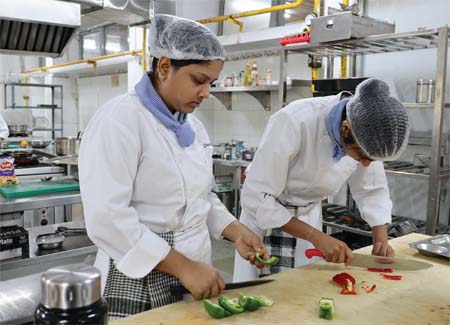 Second thing is that I really believe and you know now that I have taken a little step back, one can see some things more clearly. There is far greater talent available than most people realize. It’s just that we have been used to finding it in a certain way. If you always dug at 10 feet and you found oil, now you have to dig 20 and 30 and maybe 50 feet to strike oil. But there is talent available and second thing is that the success is going to be, the war is going to be fought on war for talent. The winners are going to be the ones that will succeed with better acquisition, better retention and how will they do it? Take a good look at your leadership at all levels and see how inspired it is or how insipid it is and then you will see where the fault lies. We have to take care of it. I remember reading a line which stayed with me and I’d like to share with you. It says, true ability is the ability to find ability in others, and honestly that is going to be the test of leadership.
Second thing is that I really believe and you know now that I have taken a little step back, one can see some things more clearly. There is far greater talent available than most people realize. It’s just that we have been used to finding it in a certain way. If you always dug at 10 feet and you found oil, now you have to dig 20 and 30 and maybe 50 feet to strike oil. But there is talent available and second thing is that the success is going to be, the war is going to be fought on war for talent. The winners are going to be the ones that will succeed with better acquisition, better retention and how will they do it? Take a good look at your leadership at all levels and see how inspired it is or how insipid it is and then you will see where the fault lies. We have to take care of it. I remember reading a line which stayed with me and I’d like to share with you. It says, true ability is the ability to find ability in others, and honestly that is going to be the test of leadership.
Suresh Kumar: Name me one thing, one moment or happening, which given a second opportunity, you would do it differently and why in the last four decades that you have been through, five decades, if given this opportunity again, what would you do?
Rajiv Kaul: I think it’s something for this room to consider. In 2008, we let go of the dollar tariff, the dual tariff. The damage that it has done to the industry is incalculable. It continues to hurt us till today. We worked so hard to get it in 1991. It stayed with us till 2008. So, I really wish, I mean, one fought, but I just wish that we could have fought harder because it was just a period of six months when the rupee appreciated against the dollar, from 43 to 38. That’s the only time and we lost our nerve.
K.B. Kachru: If you actually analyze, everybody outside this room talks about our tariffs are very high. If we want tourism to really grow, we need to offer value for money. I think most of us are exceeding the expectations in terms for value, when we compare to Europe or the entire West, we do. 20 years back, whatever was the tariff in dollar terms, it’s the same. It hasn’t gone up. What Rajiv said, I think that’s one collective regret we all have. But the opportunities each one of us have missed, I think, will always haunt us. As far as I’m concerned, I feel I had an opportunity of becoming an entrepreneur. I refused. Didn’t have the money to do it. I regret it. I would have been a different person.
Ajay Bakaya: So, monumental blunder in the late 80s was the introduction of the free breakfast buffet. We can’t reverse it today at all. And we can’t reverse it, however much you try.
Suresh Kumar: How would you like your industry to remember you and your legacy?
Ajay Bakaya: I’m not stupid enough to think anyone’s gonna remember me once I’m gone and I won’t care a damn anyways. Once I’m gone, I’m gone.
Aman Nath: I think knowing the size of the cosmos, we don’t really matter. So, it’s good if one or two generations remember whatever you’ve done, we’ll all be forgotten.
K.B. Kachru: Suresh, I think I’d like to be remembered as a good human being who contributed something to this industry.
Rajiv Kaul: I’m remembering something which Mr. Oberoi once told me. We were 14 of us in our management training batch. And once we were having lunch and I asked, I said, Mr. Oberoi, it couldn’t be a coincidence that we are 11 out of this 14, who have a public-school background and their parents are working, either for the government or the defense services, but they’ve been they’re working in the government. And he looked at me and he said, I can make a hotelier out of anybody. But I cannot make gentlemen. So, what he was looking for was gentlemen, and I hope I’ll be remembered as a gentleman hotelier.
Rohit Khattar: I’ll echo what he said, like to be remembered as a good person, a good father, a good husband, a good friend and a guy who gave you memorable meals.
Suresh Kumar: The master class has lived up to its reputation.

